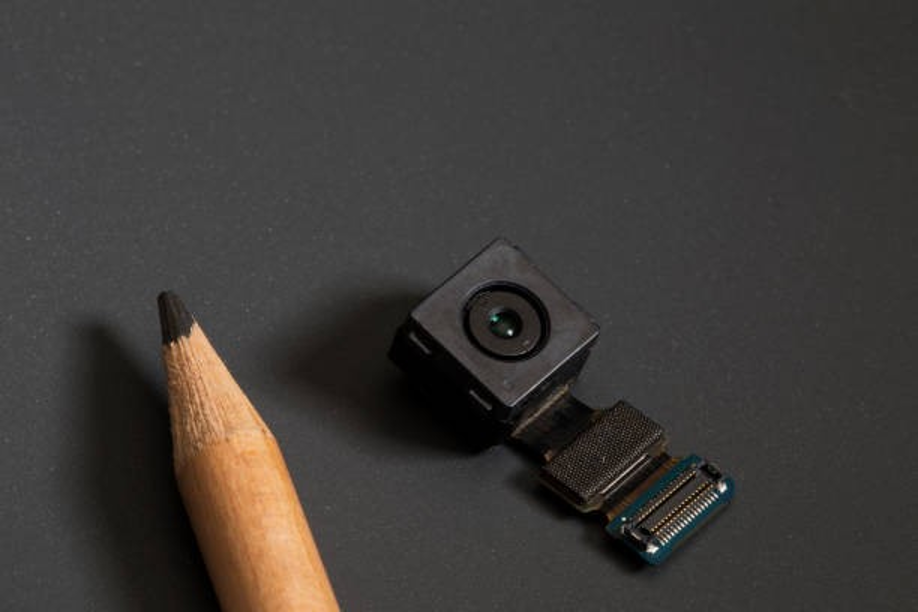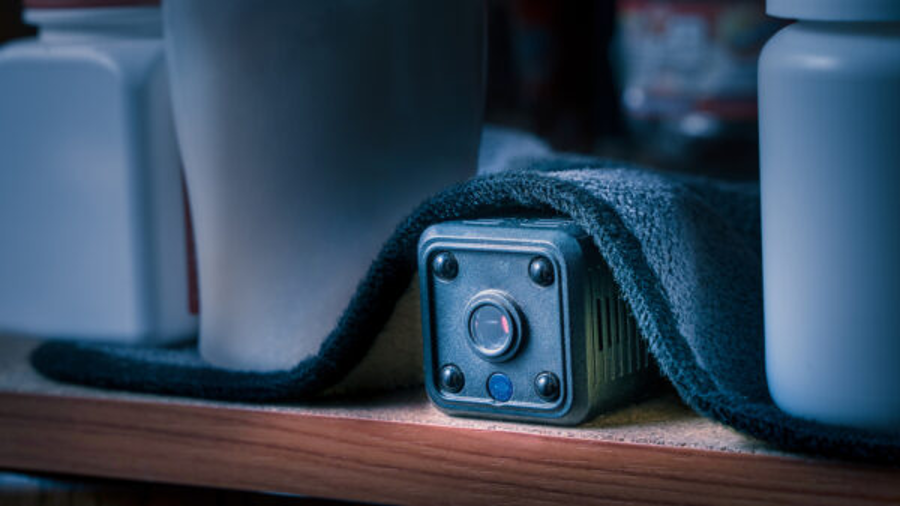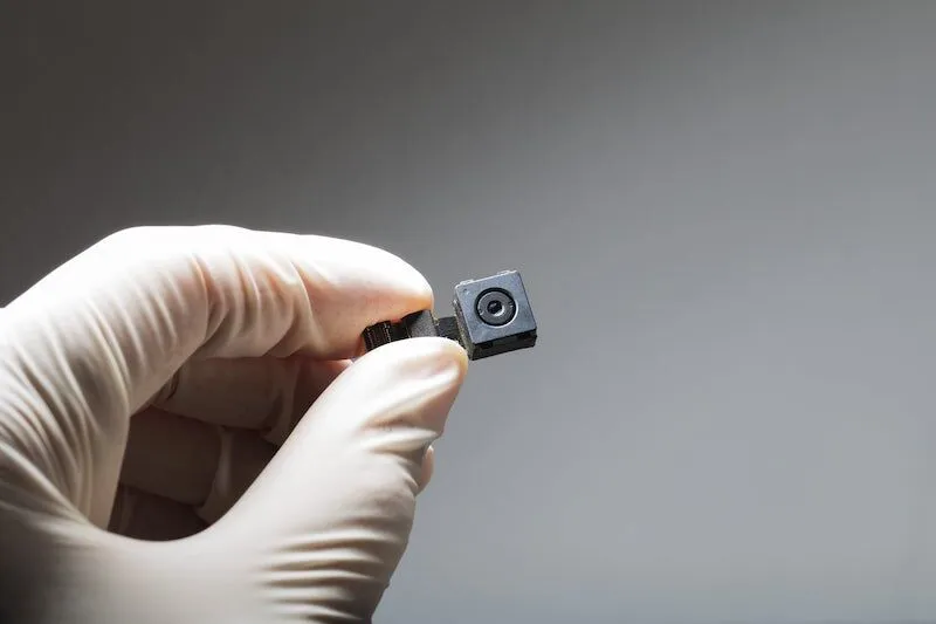Did you know that hidden camera incidents have surged with the rise of affordable surveillance technology? According to a 2021 report by Transparency Market Research, the global hidden camera market is expected to reach $14.7 billion by 2030, growing annually at 8.3%. With these numbers, the risk of encountering hidden cameras in public and private spaces is increasingly significant. Whether in hotel rooms, rental properties, or even workplaces, finding a hidden camera is a jarring experience. Knowing what to do if you encounter one can help you respond effectively and legally. This guide walks you through the legal and practical steps to handle such situations while protecting your privacy and rights.
Signs and Locations Where Hidden Cameras Are Found
Hidden cameras can be tiny and discreet, making them hard to detect. They are often placed in spaces where privacy is expected but can be breached for malicious reasons.
Common Locations
- Hotels and Rental Properties: Smoke detectors, alarm clocks, and air purifiers.
- Bathrooms and Changing Rooms: Towel hooks, vents, or toiletries.
- Workplaces: Desk organizers, wall clocks, or decorations.
- Public Spaces: ATMs, elevators, or fitting rooms.
How to Detect Them?
- Unusual Objects: If an item looks out of place, inspect it closely.
- Flashing Lights: Many cameras emit small LED lights when active.
- Lens Detection: Use a flashlight to spot reflections that indicate a lens.
- Wi-Fi Scanners: Apps like Fing or Network Scanner can identify connected surveillance devices.
- RF Detectors: These gadgets detect wireless camera signals, even if the device isn’t connected to a network.
Legal Perspective: Is It Legal to Place Hidden Cameras?
Understanding the legality of hidden cameras depends on the jurisdiction and the context. While hidden cameras are legal for certain uses, such as security in public spaces, their placement in private areas without consent is often a violation of the law.
Federal and State Laws (U.S.)
- Consent Requirements: Most states prohibit recording in places where individuals have a reasonable expectation of privacy, like bathrooms or bedrooms.
- Audio Recording: Federal laws and many states require one-party consent for audio recordings. Hidden cameras with microphones may violate wiretapping laws.
International Laws
- United Kingdom: The Regulation of Investigatory Powers Act (RIPA) governs covert surveillance. Recording without consent in private spaces can lead to prosecution.
- European Union: GDPR mandates strict data protection, making unauthorized recordings a privacy breach.
- Asia-Pacific: Countries like Japan and South Korea have stringent anti-voyeurism laws.
Knowing your legal rights is crucial before taking any further action.

Immediate Steps If You Find a Hidden Camera
Finding a hidden camera can be overwhelming. Staying calm and following a systematic approach is critical to managing the situation effectively.
Step 1: Verify the Device
Not every suspicious object is a hidden camera. Carefully inspect the item to confirm its function. Look for a lens, cables, or SD card slots. If unsure, use a detection tool or app.
Step 2: Document Your Discovery
Take pictures and videos of the suspected device. Record its exact location and how it’s installed. This documentation may be helpful for legal or investigative purposes.
Step 3: Avoid Tampering
Do not attempt to dismantle or remove the camera. This can lead to loss of evidence or even legal complications if the owner claims tampering.
Step 4: Inform the Authorities
- Hotel or Rental Property: Report to the manager or property owner immediately. Insist on a written record of the complaint.
- Police: File a formal complaint if the camera violates privacy laws.
Practical Actions to Protect Your Privacy
While reporting is essential, taking additional precautions ensures your immediate privacy.
Use Physical Barriers
- Cover the suspected camera with a cloth, tape, or an object.
- Rearrange furniture or objects to block the camera’s view.
Disable the Camera
If you confirm the device is live, disconnect it from its power source if accessible. Again, document this step carefully.
Check for Network Connections
Use a Wi-Fi scanner app to locate any other devices connected to the same network. This can help identify additional hidden cameras in the vicinity.
Legal Steps to Pursue
After discovering and securing evidence, it’s time to follow up legally to ensure accountability.
File a Police Report
Provide all the evidence, including photos, videos, and any suspicious activity noted. The authorities will investigate whether the camera’s placement violates the law.
Seek Legal Counsel
An attorney can guide you on pursuing civil or criminal charges. You may also have grounds for suing for emotional distress or invasion of privacy.
Notify Regulatory Authorities
- Consumer Protection Agencies: File complaints if the incident occurred in a commercial setting.
- Data Protection Authorities: Inform GDPR or equivalent bodies for international cases.
Preventive Measures to Avoid Hidden Cameras

Protecting your privacy starts with awareness and preparation. Here are some measures to minimize risks:
Inspect Your Surroundings
When staying in new accommodations, conduct a thorough check. Pay close attention to suspicious objects and locations.
Use Technology
- Camera Finder Apps: Apps like Hidden Camera Detector or Glint Finder.
- Detection Devices: RF detectors or thermal imaging tools.
Create a Routine
Make it a habit to scan for devices when entering private spaces. Awareness and consistency can make a significant difference.
Real-Life Examples and Cases
Airbnb Hidden Camera Case (2019)
A New Zealand family found a hidden camera in an Airbnb property, disguised as a smoke detector. The incident gained global attention, leading to stricter Airbnb policies on surveillance devices.
Public Bathroom Incident (2022)
In South Korea, a man was arrested for installing hidden cameras in public restrooms. The case prompted legislative changes, emphasizing stricter penalties for voyeurism.
Conclusion
The discovery of a hidden camera is not just a breach of privacy but a violation of trust. With hidden camera technology becoming more accessible, the importance of staying vigilant cannot be overstated. By knowing the legal and practical steps to take, you can protect your rights and privacy effectively. Always document your findings, report to the relevant authorities, and seek legal counsel if necessary. Awareness and preparation are your best defenses against these invasive practices, ensuring you can safeguard your personal spaces in an increasingly surveilled world.
